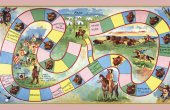Speedrunning; Terrible Games; Failure: A Q&A With the Editors of Playful Thinking

Video games are such a flourishing medium that any new perspective on them is likely to show us something unseen or forgotten. This was the assumption that sparked the idea for the Playful Thinking book series, a small but growing collection of short and argumentative books, edited by a handful of industry veterans, that bring in unique voices and share some playfulness and excitement with the games that they’re about.
Recently, Jesper Juul and Mia Consalvo, two of the series’ editors, took to Reddit to host an “Ask Me Anything” (AMA) session, where they fielded questions about everything from speedrunning culture to pernicious trends in gaming to what made early educational video games so terrible. Below, you’ll find a sample of those exchanges, which have been lightly edited for clarity and style; the entire discussion can be found here.
Why do some people dedicate so much time of their lives on old video games, way past the point they were intended to be played? I’m thinking of speedrunners who try to find weird bugs that will save them 0.1 second and that guy that wants to play Super Mario 64 with no A presses, amongst others.
Mia: I’ve interviewed several speedrunners for my research on livestreaming on Twitch, and asked them the same question. Mostly it’s about wanting a particular type of challenge — we all want to be good at something, and for these folks, figuring out the inner workings of a game is their type of challenge. They enjoy practicing and improving their technique, and then trying to perform optimally for a new run record. It’s almost like a sport: Athletes train for years to increase their speed and reduce their completion times by 1.0 seconds too. Many of them also point out that the speedrunning community (while definitely not perfect) can be a very fun place, with people sharing tips and tricks for improvement, rather than hoarding their secrets.
If we speedrun, we can feel that we are making the game into something entirely new.
Jesper: I think there is an enjoyment in not only beating the game as it was meant to be played, but beating the idea of what the game is at all. If we speedrun, we can feel that we are making the game into something entirely new, beating not only the regular challenge, but the programming, the design, everything.
What makes most educational videogames so bad, and what can be done to help it?
Mia: Early educational videogames were often terrible because they were mostly designed just as a way to push content into a person’s brain. “Here, do this math problem and then you get the reward of fun gameplay for a few minutes” was often the approach. We’re now seeing more educational games that try to do a better job. For example, games that teach about science and the scientific method by having players engage in figuring out how to solve problems using actual science.

At the same time these projects don’t have as much money as AAA games, and sometimes they run out of time/funding without being able to do the best possible job. People are also learning that these games are best used in concert with a dedicated teacher — not just on their own. So we still have lots of work to do, but I think they are slowly improving. The folks at Muzzy Lane (who do historical simulation games) have done a pretty good job with their titles.
What goes wrong every time when developing a game?
Jesper: Most developers overscope — they come up with too many features, and end up not having time to implement them. You can usually see this if you follow the development of a game: lots of features end up not making it. Also, many developers just don’t playtest enough, and you can tell.
Mia: Probably underestimating how much time it will take to make it. Which is also true of games researchers, as we (or at least me) underestimate how much time it will take to analyze a game, or to conduct interviews, or do analysis, or whatever. Because every game and research project is unique, it’s very hard to know how much time to budget.
What are your thoughts about creating good research about video games? How do you prove points derived from playing a video game? Is it mostly about experimental designs, interviews, or some other ethnographical way you use when proving points derived from playing a game?
Mia: Doing good research is a challenge in any field — not just in game studies. I usually gravitate towards player studies, and doing interviews, so I have some data to point to in order to back up assertions I make about how or why people play, for example. But you also have to be careful in that we can’t generalize to ‘everybody thinks this’ as we just can’t interview everybody. And often those who want to talk to us have strong viewpoints. The quiet and/or very casual people often aren’t interested in taking part. So we always have to be cautious in our claims about ‘what players say’ for example.
Growing up, my parents would avoid buying certain types of games for me because they thought the game itself would be a bad influence on me. Are there certain video games or genres that experts, like y’all, have concluded to be bad influence on kids or society?
Mia: At best the evidence is mixed about games and violence, and much of the work is problematic for multiple reasons. Social science also deals with predicting the behaviors of populations (some X% will have problems) and not individual people. There’s a great book by Barrie Gunter called “Does Playing Video Games Make Players More Violent” that I’d recommend. His TL;DR is that it is all very complicated, and even experts agree that there is no one “cause” that makes us violent or not. A game or a book or a movie or a bad friend even might contribute if we already have personal problems, family problems, environmental problems, etc., but no one thing will push a well-adjusted person over the edge.

At the same time I think parents should definitely be active in considering what media they want their kids to consume. As a teenager I watched “Salem’s Lot” at a friend’s house and had nightmares for a while. I also can’t play survival horror games for the same reason. That’s just to say some kids may not be mature enough to handle the themes in certain games at certain points in their lives. But that doesn’t mean that games are a ‘bad influence’ — they are only one thread in our complex lives.
Is Davey Wreden’s “The Beginner’s Guide” a game, and should one care about such questions?
Jesper: Art forms evolve — remember that many people thought that sound would destroy cinema, so it’s not productive spend too much time trying to freeze art forms in their current state. I think it is more useful to think about how (for example) “The Beginner’s Guide” is different than other games — how is it part of video game history?
When we think about walking simulators like “Dear Esther,” it at first seems different than other games, but then you realize that AAA single-player often has lots of walking between action sequences, so walking is actually part of video game tradition.
Art forms evolve. Many now-canonical artworks were considered outrageous when they came out.
It is quite similar to art history in that way — many now-canonical artworks were considered outrageous when they came out, so the best question may be to think about how a new experimental game fits with the tradition, rejecting conventions, confirming them, or subverting them.
What are some of the worse qualities and issues in gaming in your opinions? How do you feel gaming will change in the next five years? I am mainly an old school gamer just from convenience, time and money; however, I love to stay in the loop with new developments.
Mia: There’s a lot of toxicity in online games. The problem here (well there are many) is that players and developers often disagree about what toxicity even is. To some players, certain behaviors or words are toxic, while to other players they are no big deal. But if those words and behaviors drive people away, there’s a problem.
I also think large game studios still have workplace problems. This includes lots of crunch time (overwork) as well as lots of layoffs after games are completed. This means that lots of developers work very hard and then get laid off as soon as their current game ships.
I have no idea about the next five years although more cloud gaming will probably be a thing, whether we like it or not.
Jesper: For predictions: there is a big trend concerning how fast a game is supposed to become fun.
Twenty years ago, we would say that the player should have fun within the first 15 minutes.
With downloadable casual games, that went down to 5 minutes.
With current “hyper-casual” games (.io games for example), the window seems to be down to 5 seconds.
So that is a clear historical trend. It also makes sense — with the increased availability of games, we can try more games, so games have to hook us faster. With streaming, that is going to apply to larger games too.
Perhaps future games will have to hook us in 500 ms? At least the pressure for quick enjoyment is going to increase across game genres.
Favorite games?
Mia: One of my favorite games of all time is Okami. It was absolutely beautiful from an art and music/sound perspective, I loved the story, and the interaction system was fun and unique. More recently I’ve been a fan of the Dragon Age series. I even like the second one.
Jesper: I like different games at different times. I was really into Mass Effect (pre Andromeda) and even liked the ending. Right now, I am obsessing over Paper.io 2. I also had a Super Monkey Ball period. And I love co-op such as Guacamelee and Lovers in a Dangerous Spacetime. And experimental games from Braid to EVERYTHING IS GOING TO BE OK.
Mia Consalvo is Professor and Canada Research Chair in Game Studies and Design in the Department of Communication Studies at Concordia University in Montreal. She is an editor of the Playful Thinking series and the author of several books, including “Cheating: Gaining Advantage in Video Games” and “Real Games: What’s Legitimate and What’s Not in Contemporary Videogames.”
Jesper Juul is Associate Professor in the School of Design at the Royal Danish Academy of Fine Arts. He is an editor of the Playful Thinking series, and an author of several books, including “Handmade Pixels: Independent Video Games and the Quest for Authenticity” and “The Art of Failure.”



